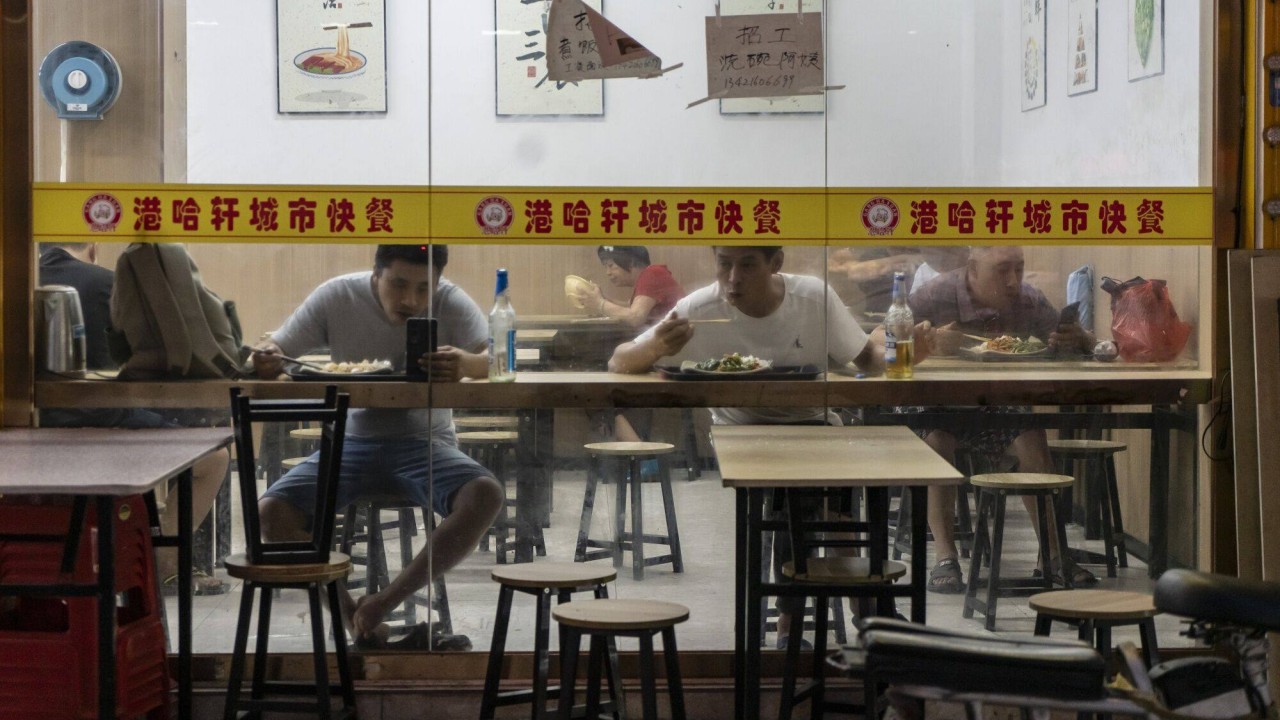China’s embattled restaurants, embroiled in price war, struggle to stay afloat


In Beijing, profits of the catering companies with annual revenues exceeding 2 million yuan (US$280,750) fell to 180 million yuan (US$25 million) in the first half of the year, marking an 88.8 per cent year on year decrease.
Profit margins, a gauge for the company’s profitability, have also dropped to as low as 0.37 per cent, according to data from the Beijing Municipal Bureau of Statistics released in mid-August.
The price war reflects the broader trend of consumer downgrading
The situation for Shanghai’s catering operators is even worse, as companies with annual revenues exceeding 2 million yuan saw a loss of 770 million yuan in the first six months of the year, compared to profits of 1.7 billion yuan during the same period last year.
Caterers are proactively lowering prices to tempt consumers, but analysts have urged the government and industry organisations to intervene to prevent a damaging price war that could further harm small businesses.
“The price war reflects the broader trend of consumer downgrading, as residents face lower incomes and uncertain prospects, leading to more constrained spending on food,” said Peng Peng, executive chairman of the Guangdong Society of Reform think tank.
“The price war in the catering sector will persist as long as domestic demand remains low and residents cannot anticipate stable economic conditions.”
On Meituan, China’s leading food service platform, some caterers in Beijing are offering a burger set for 19.9 yuan (US$2.8), a whole grilled chicken for 15.9 yuan and an all-you-can-eat beef barbecue buffet for 79 yuan.
Starbucks, the world’s leading coffee brand, has also introduced a 19.9 yuan drink set, which is nearly half the price of its regular offerings.
“A lot of the restaurants that can endure price cuts are usually under big food chains because they have more established franchising, warehousing, and supply systems, but such competition is harming the market for the self-employed business,” said 33-year-old restaurateur owner Eric, who declined to disclose his surname due to sensitivity of the issue.
He had opened a small Xinjiang cuisine restaurant in Chongqing in April.
“But I will never lower the prices of my food, they are already set at a reasonable range, and further reductions would only result in greater losses,” he added.
“This is an unfair industrial competition, but I won’t compromise.”
The best remedy is still the recovery of the domestic economy
Peng from the Guangdong Society of Reform also urged local governments and industry associations to establish regulations to halt the ongoing price war.
“The best remedy is still the recovery of the domestic economy,” Peng added.
Amid the domestic economic downturn, many prominent food and beverage companies have already reported bleak results.
On Monday, well-known Taiwanese restaurant chain Din Tai Fung announced that it would close 14 of its restaurants, including in Beijing and Tianjin, by the end of October.
In the first half of the year, at least 74 food and beverage brands in China announced the closure of over 400 shops, according to Linkshop, a retail business information platform based in Zhejiang.
Source link



